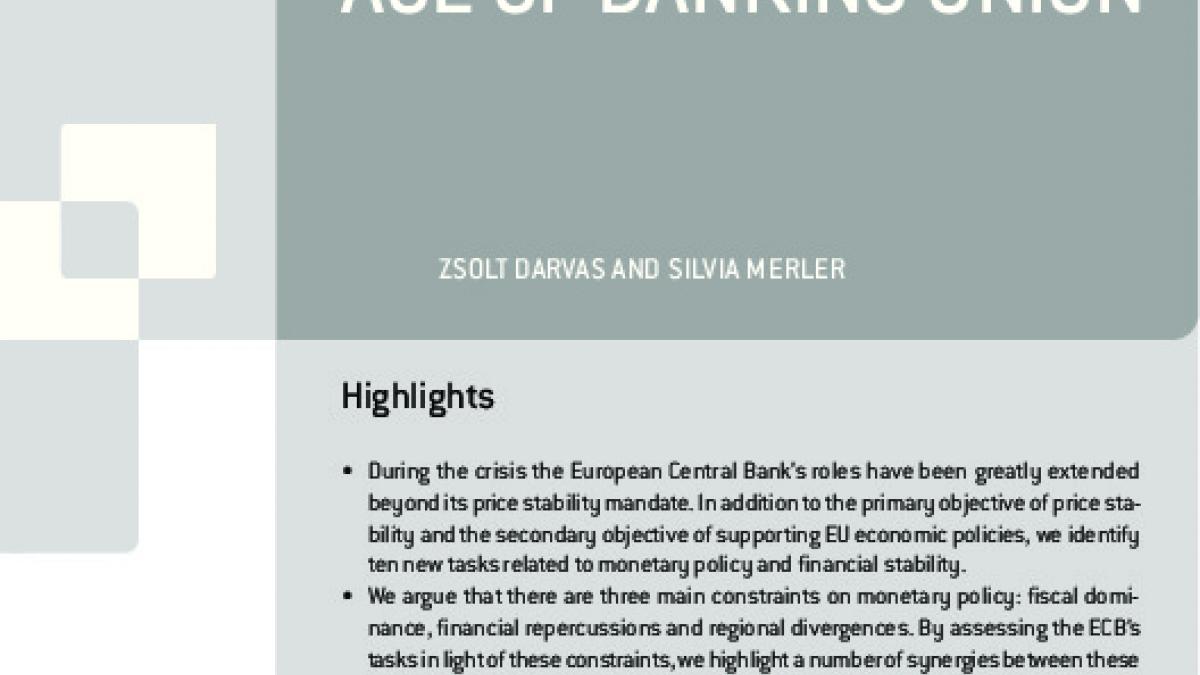The European Central Bank in the age of banking union
This Policy Contribution was prepared for the European Parliament's 'Monetary Dialogue with the President of the European Central Bank Mario Draghi. D

During the crisis the European Central Bank’s roles have been greatly extended beyond its price stability mandate. In addition to the primary objective of price stability and the secondary objective of supporting EU economic policies, we identify ten new tasks related to monetary policy and financial stability.
We argue that there are three main constraints on monetary policy: fiscal dominance, financial repercussions and regional divergences. By assessing the ECB’s tasks in light of these constraints, we highlight a number of synergies between these tasks and the ECB’s primary mandate of price stability.
But we highlight major conflicts of interest related to the ECB’s participation in financial assistance programmes. We also underline that the ECB’s government bond purchasing programmes have introduced the concept of ‘monetary policy under conditionality’, which involves major dilemmas. A solution would be a major change towards a US-style system, in which state public debts are small, there are no federal bail-outs for states, the central bank does not purchase state debt and banks do not hold state debt. Such a change is unrealistic in the foreseeable future.



